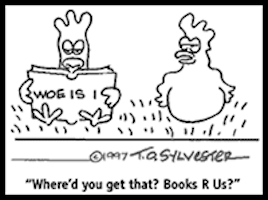
[Tomorrow is Valentine’s Day, and to mark the occasion we’re republishing a post from July 20, 2012, about a point of grammar in Leigh Hunt’s poem “Jenny Kiss’d Me.”]
Q: I was browsing through a collection of “best loved poems” the other day and came across the charming rondeau “Jenny Kiss’d Me,” a favorite of mine. Once upon a time I even had occasion to memorize it (wrongly as it turns out). Two of its lines are: “Time, you thief, who love to get / Sweets into your list, put that in!” I remembered it as “who loves to get,” which sounds better to me. I’m certainly not the one to correct Leigh Hunt, but I would be interested in any comment you might have.
A: You can find published versions of Leigh Hunt’s poem (originally published in the November 1838 issue of the Monthly Chronicle) with either “love” or “loves.” But most of them use the second-person singular “love,” which is appropriate, as we’ll explain.
The earliest version of “Jenny Kiss’d Me” that we could find online was from an 1847 collection of Hunt’s prose writings. In one of the essays, he mentions that a rondeau written by Pope inspired him to write this one of his own:
Jenny kiss’d me when we met,
Jumping from the chair she sat in;
Time, you thief! who love to get
Sweets into your list, put that in.
Say I’m weary, say I’m sad,
Say that health and wealth have miss’d me,
Say I’m growing old, but add,
Jenny kiss’d me.
(We’ve used the punctuation from Hunt’s essay.)
Why does Hunt uses “love,” not “loves,” in his poem? Because the line is addressed to “Time, you thief!” so the second-person verb—the form used with “you”—is correct.
Similar second-person constructions (as in “you who love,” “you who say,” “you who are,” and so on) can be found throughout English literature, whenever the writer addresses a subject referred to subsequently as “who.”
Here’s an example from a sermon by John Wesley: “And as to you who believe yourselves the elect of God, what is your happiness?”
And here’s another, found in a letter written from Italy by Lord Byron in 1819: “All this will appear strange to you, who do not understand the meridian morality, nor our way of life in such respects.”
By analogy, Hunt might have written, “Time! You who love to get / Sweets into your list, put that in.”
Hunt’s poem, commonly known as “Jenny Kiss’d Me,” is actually entitled “Rondeau,” though it’s technically not a rondeau. It has only one stanza and it doesn’t have the typical rhyme scheme of a rondeau. But it does, like a rondeau, begin and end the same way.
Who, you may ask, was Jenny and why did she kiss him? Here’s Hunt’s explanation:
“We must add, lest our egotism should be thought still greater on the occasion than it is, that the lady was a great lover of books and impulsive writers: and that it was our sincerity as one of them which obtained for us this delightful compliment from a young enthusiast to an old one.”
The Carlyle Encyclopedia, edited by Mark Cumming, identifies Jenny as Jane Welsh Carlyle, wife of the historian Thomas Carlyle. Her nickname was “Jenny,” according to the encyclopedia, and she kissed Hunt on learning that he’d recovered from one of his many illnesses.
Help support the Grammarphobia Blog with your donation.
And check out our books about the English language.
